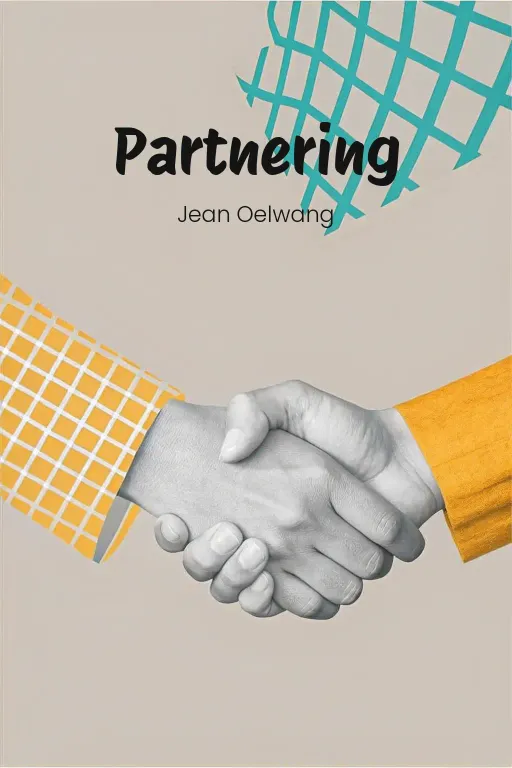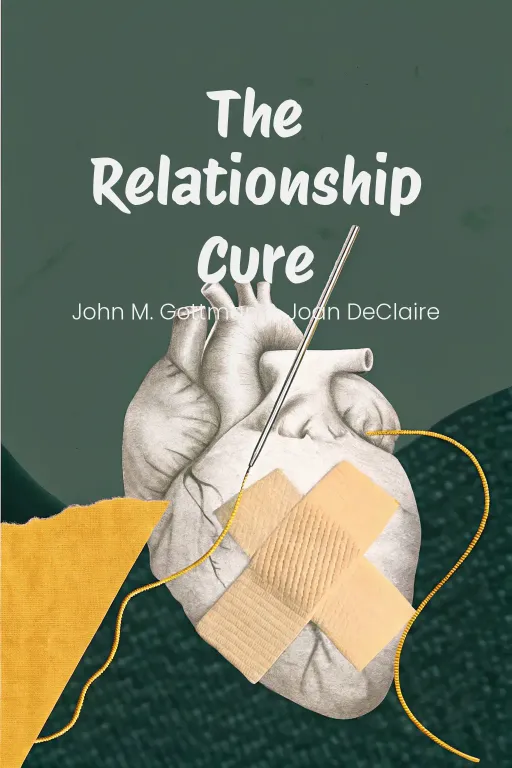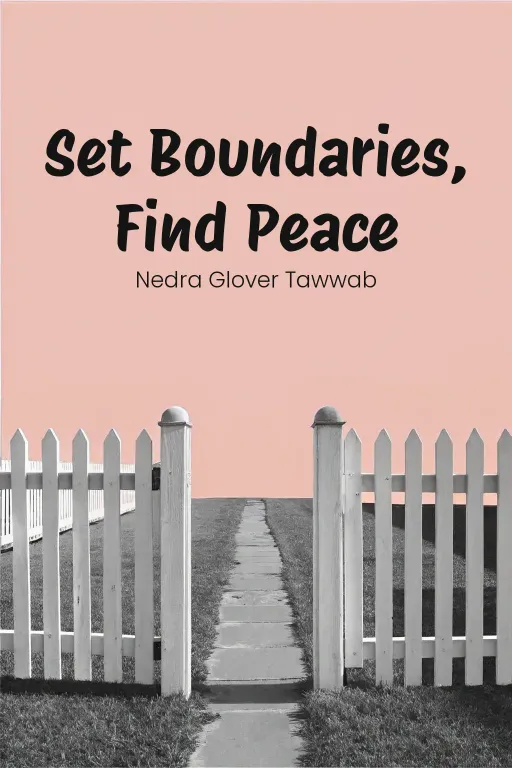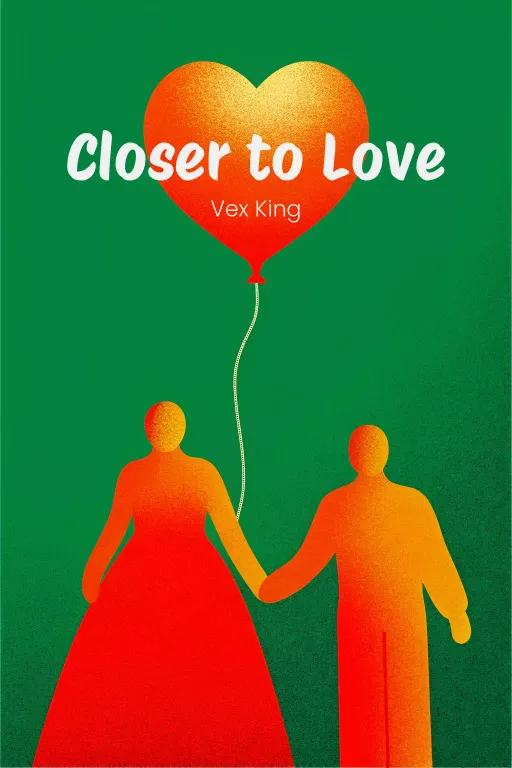
Connect Deeper, Daily: Simple Rituals That Work
Podcast by Beta You with Alex and Michelle
A 5 Step Guide to Strengthening Your Marriage, Family, and Friendships
Introduction
Part 1
Alex: Hey everyone, welcome back! Today we're diving deep into something that touches all of us: relationships. Think about your partner, your best friend, even that coworker you see every day. How often do you “really” connect with them on an emotional level? What if stronger, more fulfilling relationships came down to something as simple as a glance, a question, or even a shared laugh? Michelle: Exactly, Alex. And let's be honest, most of us are kind of sleepwalking through these interactions. We think we're connecting, but actually, we're missing a ton of those little moments. How many times has someone in your life tried to connect with you, and it just went straight over your head? Not that I'm speaking from personal experience or anything… Alex: <Laughs> Well, that’s “exactly” what we’re talking about today! We're unpacking some fascinating insights from Dr. John Gottman’s book, The Relationship Cure. After decades of research, Gottman and Joan DeClaire have broken down emotional connection into really simple, practical steps. And at the heart of it all is recognizing and responding to what they call "bids for connection" – those tiny, often subtle, moments where someone's reaching out for some kind of emotional engagement. Michelle: And this isn’t just a marriage manual, right? We’re talking about all relationships – friends, family, even the person in the next cubicle. Alex: Absolutely. The book goes way beyond just theory. Gottman offers a five-step process for actually building better connections. It's full of interesting principles, tools, and exercises, all designed to help us become more emotionally aware of each other. And he does this by explaining the science behind how we relate, everything from our emotional command systems to the, shall we say, baggage of our emotional history. Michelle: Okay, so here's what we're going to cover today. First, we're going to talk about these "bids for connection"—what are they exactly, why do we miss them so often, and why are they essentially the secret code in any strong relationship? Alex: Then we'll dive into the emotional command systems. Think of these as the brain's control panel for how we react to bids. It’s fascinating to understand why you might be an emotional "nest-builder," while someone else is wired to be a "sentry." Michelle: And finally, we're going to talk about rituals—those small, seemingly insignificant habits and shared experiences that keep relationships alive, even when life gets crazy. Think of them as emotional blueprints for deeper connection. Alex: So, whether you're trying to strengthen your marriage, bond with your kids, or just avoid losing it with your coworker, this episode has something for you. Let's unlock some of the secrets behind Gottman's relationship magic!
Understanding Emotional Bids for Connection
Part 2
Alex: Okay, let's really dive into the cornerstone of Gottman's work – these emotional bids for connection. It's the key to understanding how we build and maintain emotional intimacy, you know? What’s so fascinating is that these bids can be tiny, like a smile, or really layered, like a heartfelt confession. Basically, they're these little gestures saying, "Hey, I'm reaching out here. Are you with me?" Michelle: And that's the thing, isn't it? I think a lot of the time, we don't even realize someone's making a bid. It's not like people have a flashing sign that says, "Attention needed!" Alex: Exactly! And missing these moments can have a big impact. Gottman shows us that our response to a bid—whether we “turn toward”, “turn away”, or “turn against”—can really shape the course of a relationship. Michelle: Okay, so walk me through this. Turning toward a bid, that's the gold standard, right? Alex: Absolutely. Turning toward means acknowledging and engaging with the bid, even in small ways. Say someone says, "Wow, look at that sunset," and you respond with something like, "It's beautiful—so vibrant tonight." That response reinforces the connection and makes the other person feel seen, appreciated, and valued. Michelle: Simple enough, but I know what people are thinking. What if you’re super tired or stressed, or you just don't want to talk about sunsets? I mean, life gets in the way, and turning “away” feels like the default sometimes. Alex: Definitely, and that’s when we start to see cracks in relationships. Turning away isn’t always intentionally dismissive – often, it's just being distracted or preoccupied. Picture a parent scrolling through their phone while their kid excitedly tells a story. They might not mean to say, "I don't care," but it could feel that way to the child, who might eventually stop making bids altogether. Michelle: So, turning away is more like a missed chance than outright rejection? Alex: Exactly. But these missed moments add up, you know? They slowly communicate that connection isn't a priority, which can erode trust and intimacy. And then you've got the third response—turning against—which is actively rejecting the bid. That's when things can get really damaging, really fast. Michelle: Like the really hostile stuff? I get it. Partner one says, "I nailed that presentation today," and partner two snaps back, "Big deal. It's your job." Alex: Exactly. Those moments don’t just dismiss the bid; they create conflict and emotional distance. Gottman found that patterns of consistently turning against each other can really damage a relationship beyond repair. Over time, the person reaching out might just give up completely. Michelle: That sounds like what happens in some marriages when one person withdraws completely. It's like a cold war of silence, not because they've stopped feeling, but because they've stopped feeling safe enough to express those feelings. Gottman must have seen this kind of thing a lot. Alex: He did. In fact, his "Love Lab" studies showed that couples heading for divorce ignored each other’s bids about 80% of the time. It’s a staggering number compared to the couples who consistently “turn toward” each other. It’s really that cumulative effect, you know? Michelle: So if you're growing apart in your marriage—or any relationship, really—it might not be about one huge argument, but more about a series of small neglects? Alex: Precisely. And it’s true for parenting too. Think about how parents respond to their kids. When a baby cries, they're reaching out for comfort and connection. The parent's response either builds trust—or undermines it. Michelle: Right. A parent who picks up the baby and comforts them is saying, "I'm here for you, and you matter." But what if the parent yells, "Stop crying!" That's subtly saying, "Your feelings aren't valid, so don't bother me with them." Is it any wonder that kids start to shut down over time? Alex: Sadly, it’s true. And this affects long-term emotional health. Kids who have their bids rejected a lot might struggle with relationships later, becoming either too clingy or too distant because they've learned not to trust connection. Michelle: Gottman must have had some advice on how to fix this, right? Don't leave me hanging. What if you're a "turn away-er," like one of those parents—or, okay, one of those partners who doesn’t always pick up on subtle bids. What's step one? Alex: Step one is mindfulness – becoming aware of these bids around you. Gottman stresses eye contact, active listening, and paying attention to nonverbal cues. For example, say your partner sighs heavily while doing the dishes. That might be saying, “I'm feeling overwhelmed. Can you see me right now?" Michelle: Okay, but if you're not naturally observant, how do you start picking up on these cues? Alex: Tools like keeping an emotion log can help. You write down times someone makes a bid and your response—or lack thereof. It can be incredibly revealing. You might learn, for instance, that you tend to turn away when you’re feeling preoccupied or tired, which then helps you to make adjustments. Michelle: Sounds like a safe way to deal with seeing something that had been in your blind spot. Alex: Exactly. And for tougher situations —say, complaints or sarcasm disguising a real bid—actively reframing the situation can make all the difference. If someone says, "You never help out," they’re probably expressing a deeper need for support or involvement. A helpful response isn’t defensiveness, but empathy: "You’re right—I haven’t been doing my fair share. Let’s fix this together." Michelle: So even negativity—a snide comment or an angry outburst—might still be a hidden cry for connection in disguise? Alex: Precisely. And those moments are crucial. Instead of reacting to the hostility, focus on the underlying emotion. Ask yourself: what's the actual bid behind all this? Michelle: I like that. It makes these emotional bids seem less...fragile. Like, even when communication isn’t perfect, there’s still a way to find that connection. Alex: Exactly. Emotional bids are those small, everyday chances we have to build trust and intimacy. They're the backbone of every strong and healthy relationship, not because they're dramatic or spectacular, but because they're consistent.
Exploring Emotional Command Systems
Part 3
Alex: So, once we really understand how important emotional bids are, the next step is figuring out what drives our responses to them, right? That's where Gottman’s emotional command systems come in. Honestly, it's a brilliant way of connecting the theory of how we're wired emotionally to really practical self-awareness. Michelle: Yeah, I have to admit, "emotional command systems" sounded super sci-fi at first. I was picturing NASA. What does that even mean? Is it like… universal human operating software? Alex: In a way, yes! Gottman outlines seven systems, each one regulating a different emotional drive. They're rooted in neuroscience, so you can think of them as networks in our brains that guide our emotional experiences and reactions. They influence everything: curiosity, energy, humor, our need for safety, intimacy, even how much we want to take care of others. Michelle: Seven systems, huh? Okay, let’s name them… are these like the seven dwarves of relationship dynamics? Alex: <Laughs> Not exactly. The seven systems are: Commander-in-Chief, Explorer, Sensualist, Energy Czar, Jester, Sentry, and Nest-Builder. Each governs a specific area of emotional motivation and behavior. Michelle: Got it. So, let’s break these down. What’s the Commander-in-Chief all about? Is that the part of us that loves to be in charge? Alex: Exactly! The Commander-in-Chief is about control, leadership, taking charge. Think of Lisa, that manager who excels in high-pressure situations, bringing her team together with her decisive leadership. That's her Commander-in-Chief in action. Michelle: Okay, but there has to be a downside, right? Like, the aspiring commander who accidentally becomes the office micromanager? Alex: Precisely. When overactive, it can turn into micromanaging, aggression, dismissing others. It's the parent who over-controls their child’s life, never letting them make their own decisions. And on the other hand, an underactive Commander-in-Chief can leave someone feeling powerless or lost, unable to make decisions. Michelle: So, finding balance is about… tempering leadership with collaboration? Knowing when to step back and let others contribute? Alex: Absolutely. It’s about recognizing when to assert authority and when to empower others. Michelle: Moving on to the Explorer… I like this one. Sounds like the emotional system of an adventurer. Alex: That's a great way to put it. The Explorer governs curiosity, innovation, discovery. Picture a student studying abroad, excitedly embracing new cultures – that's the Explorer at work. It drives us to seek novelty and learning in life. Michelle: Cool. Here’s a scenario: one partner is the Explorer, constantly wanting to try new things, while the other thrives on routine. How does that work? Alex: That's a classic tension. The Explorer partner might crave spontaneity and adventure, while their more stability-oriented partner prefers predictability. If you don't address it, it can cause misunderstandings. The key is negotiation: finding a balance where there’s room for new experiences, but also a stable structure for both partners. Michelle: So, maybe occasional getaways combined with intentional everyday rituals. Compromise 101. Okay, the Sensualist – does this one bring romance into the mix? Alex: It definitely does! The Sensualist system is all about attraction, intimacy, and physical connection – everything from holding hands to deep emotional closeness. When nurtured, it brings couples closer by reinforcing bonds with physical affection. Michelle: And when it's unbalanced? Alex: You get challenges in both directions. An overactive Sensualist might prioritize physical connection while neglecting emotional depth, creating a dynamic where one partner feels objectified. And an underactive Sensualist can lead to emotional distance or disconnection. Imagine one partner feeling neglected because their need for physical affection isn’t met, while the other feels pressured by those expectations. Michelle: So, the solution is… talking through intimacy needs, without judgment? Alex: Exactly. Honest conversation that centers on mutual respect clears up a lot of disconnects. Michelle: Now, the Energy Czar…sounds like a personal trainer. What’s its role? Alex: It’s about energy management: self-care through rest, nutrition, overall well-being. Picture a marathon runner balancing training with rest days to maintain peak performance. That’s a healthy Energy Czar at work. Michelle: And an “overactive” Energy Czar? I'm guessing… obsessive focus on health? Alex: Exactly – compulsive dieting or over-exercising. Meanwhile, an “underactive” system leads to neglect, like skipping meals, poor sleep, and chronic fatigue. Michelle: Jester system – please tell me this is where humor comes into play. Alex: Absolutely! The Jester governs playfulness, creativity, joy. It’s the part of us that seeks laughter, relaxation, and stepping away from life’s serious moments. Think of a family game night – levity encourages bonding and stress relief. Michelle: But I'm betting there's a darker side to laughter, too, right? Alex: Definitely. An overactive Jester can lead to immaturity or avoiding responsibilities, especially in moments that require seriousness. An underactive Jester might make someone overly rigid, unable to enjoy life’s lighter moments. Michelle: Next up, the Sentry. Sounds serious… what's this one about? Alex: The Sentry is tied to vigilance and safety, guiding us to be alert to threats. Think of a parent in a busy park, scanning for potential dangers – that's the Sentry in action. Balanced, it ensures safety; overactive, it looks like paranoia or controlling behavior. Michelle: So, a partner who’s overly suspicious would fall into the overactive Sentry camp, yes? Alex: Exactly. While an underactive Sentry might manifest in inattentiveness, like texting while driving – not great for anyone’s physical or emotional safety. Michelle: Okay, close us out with the Nest-Builder. Alex: The Nest-Builder is our drive to nurture and connect emotionally – caregiving, creating warmth, and fostering security. Picture a parent making their child’s favorite breakfast before their first day of school – it’s about emotional investment. Michelle: But I imagine you get dependency issues with an overactive Nest-Builder, right? Alex: Exactly – over-involvement, micromanaging, or emotional enmeshment. And an underactive Nest-Builder risks emotional neglect, leaving others feeling undervalued. Michelle: So each of these systems clearly has a sweet spot, but can cause havoc if out of whack. How does someone start figuring out which system is driving the bus at any given time? Alex: Self-reflection is key here. Journaling or self-assessments help people see which systems are dominant, underactive, or out of balance. Just being able to say, "Ah, my Commander-in-Chief is in overdrive," creates awareness – and once you’re aware, you can take steps to recalibrate. Michelle: And if you’re not just driving your own bus but also managing relationships, would sharing these insights help? Alex: Definitely! Open conversation fosters understanding. Imagine a couple discussing how one person’s Explorer tendencies might clash with the other’s Energy Czar need for quiet routines. Acknowledging strengths and potential tensions sets the stage for empathy and compromise. Michelle: Okay, I’ll say it: Gottman’s emotional command systems are like cheat sheets for anyone who wants to understand themselves better, not to mention facilitate happier relationships.
Cultivating Emotional Rituals and Shared Meaning
Part 4
Alex: Once we're aware of these systems, we can explore how early experiences shape our emotions. Then, having done that reflecting, we can aim for something truly transformative: building emotional rituals and shared understanding in our relationships. This part is all about putting what we’ve learned into action every day. Michelle: Practical, huh? So, we're finally stepping out of theory and into something I can actually use without needing a PhD in feelings? Alex: Precisely! That's where Gottman is brilliant. Rituals are those tangible, repeatable things that create emotional bonds. They can be totally predictable routines, or super personalized moments. It's not about what it looks like, but how it connects people and reinforces shared meaning. Michelle: Okay, so when we say "rituals," we're not just talking about candlelit dinners, right? Could it be something as simple as a consistent "good morning" text? Alex: Exactly! Rituals are powerful because they offer reliable emotional connection. Even a quick morning greeting carries a lot of weight. It creates stability, dependability, a sense of belonging. Michelle: I get it. Unpack this a bit, though. How is a predictable ritual different from, say, something highly personalized? Alex: Good question. Predictable rituals are all about regularity. Think family dinners. For some, it's not just eating; it's a must-do for connection, even when life's chaotic. Everyone knows what to expect, and that consistency is calming, especially for kids. Michelle: Right, stability. And personalized rituals? They amp up the emotional meaning, I guess? Alex: Totally! These are tailored to shared dreams or memories. Like, a couple recreating their first date every anniversary. It's super personal because it honors their start and reflects their specific story. Michelle: Gotcha. So, one is like having pizza every Friday – comfortable, reliable. And the other is like a private joke only you and your partner understand? Alex: Exactly! Although now I’m wondering if pizza is your cornerstone family tradition. But yeah, personalized rituals often grow out of big moments or shared situations. They reflect what makes your relationship unique. Michelle: Okay, now I'm curious. Where do cultural rituals fit in? Because those operate on a different level – communal, symbolic, right? Alex: Great point! Cultural rituals unite people through shared values, beliefs, traditions. Think of Thanksgiving dinner or a neighborhood block party. These create a group identity, beyond just individuals. And, more personally, they provide structure for big life changes, like weddings or even funerals. Michelle: Got it. Everything from cosmic symbolism to…turkey. Nice range! So how do people start building these rituals if they don't have them? Alex: Gottman has some great advice. I love starting by looking at what rituals you already have. What routines in your life connect you, or give you meaning? Michelle: Huh, so don't rush to “create something new.” Instead, slow down, and see what's already working? Alex: Absolutely! You might have Sunday brunch with friends. You might not think of it as a "ritual," but it’s a regular time to share stories and reconnect. Recognizing that makes you more aware of protecting it, and its emotional importance. Michelle: Okay, audit what you have. Next, ritual brainstorming? Like sitting down and saying, "Alright, new family traditions, go!"? Alex: In a way, yes! Once you've thought about existing rituals, brainstorm things that fit your emotional needs. The best rituals come from identifying what matters most – creativity, humor, calm in a busy house… Michelle: So the Roth family, remind us – what was their thing? Hiking? Alex: Yes! They made Saturday hikes a ritual. More than exercise, they were teaching resilience, exploration, connection. Life got busy, but they protected that time. It wasn't just a hike; it became a cornerstone of their family bond. Michelle: I like it. What if a family is not outdoorsy? How do you deal with different personalities when setting something like this up? Alex: That’s where creativity comes in! Follow someone’s personality or "command system." If they’re a "Jester," maybe they'd love game night. If they respond strongly to the call of the "Nest-Builder," maybe they would enjoy a family gardening project. Listen to what each person needs. Michelle: So reflection, tailoring. Now, someone's listening, thinking, "Too busy! Can't plan elaborate rituals!" Alex: Keep it simple! The most effective rituals are often small, and sustainable. Think micro-rituals – like sharing gratitude before dinner, or a 10-minute chat before bed. They're not time-intensive, but over time, they're emotionally huge. Michelle: Micro-rituals? So, "Hey, how's your day going?" counts, if it’s consistent and heartfelt? Alex: Totally! It’s about intention. Even small rituals offer chances to reconnect, listen, and support each other. Michelle: Okay, last angle: conflict. Every couple or family has disagreements. Can rituals help even then? Alex: Absolutely. Conflict sometimes comes from unmet emotional needs, or differing dreams. Create a ritual – regular check-ins, "dream discussions" over dinner... you turn conflict into a chance to connect. One couple in the book had monthly dinners to discuss their values, and it became a space to work through disagreements productively. Michelle: So instead of letting issues fester, you create a regular time to clarify, "Here's what we both want – we're on the same team." Alex: Exactly! Rituals like that are safeguards. They anchor us, even when things are tough, so relationships grow stronger instead of falling apart. Michelle: Bottom line: a Sunday hike, game night, a quick hug… rituals matter more than we think, and they’re within reach for everyone. Alex: They really are! Small, meaningful, intentional habits can really deepen emotional connection and build shared purpose, even when life gets crazy.
Conclusion
Part 5
Alex: Okay, let's tie everything together. We've talked about emotional bids today. Those little requests for connection that can really make or break a relationship, depending on how we react. Gottman’s research clearly shows that consistently turning towards these bids is crucial for building trust and intimacy. Michelle: Right, then we jumped into those emotional command systems, basically our internal wiring that shapes how we behave in relationships. Whether you're an Explorer craving new experiences, a Nest-Builder creating emotional warmth, or a Sentry always looking for safety, understanding these systems can seriously improve our communication and help us get back on track when things get a little rocky. Alex: And finally, we touched on the power of rituals, those predictable routines and traditions that can “really” elevate relationships. Something as simple as a daily check-in or as big as an anniversary tradition, these habits keep us connected and emotionally secure. Michelle: So, the main point here is: true connection isn’t about grand gestures or those once-a-year efforts. It’s about those small, everyday actions. Responding to emotional bids, understanding the systems behind your reactions, and building meaningful rituals—that's what creates deep and lasting bonds. Alex: Exactly! So, here’s what we want you to do: start small. Really pay attention to the bids that are happening around you, You know, a sigh, a smile, a little question, and try to respond positively. Then, think about which emotional command systems might be influencing you, perhaps negatively, and consider adding one meaningful ritual to your life this week. Michelle: Because when you connect with intention, you’re not just improving your relationships, you’re building a foundation of trust, resilience, and shared meaning, and honestly, who wouldn’t want more of that? Alex: Totally! So, until next time, keep nurturing those connections, everyone. They “really” are at the heart of everything.









